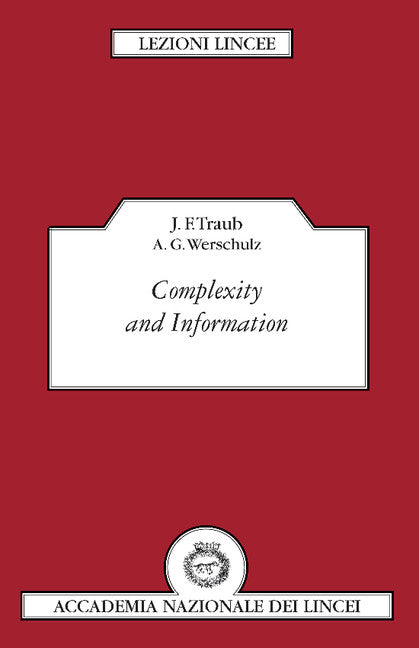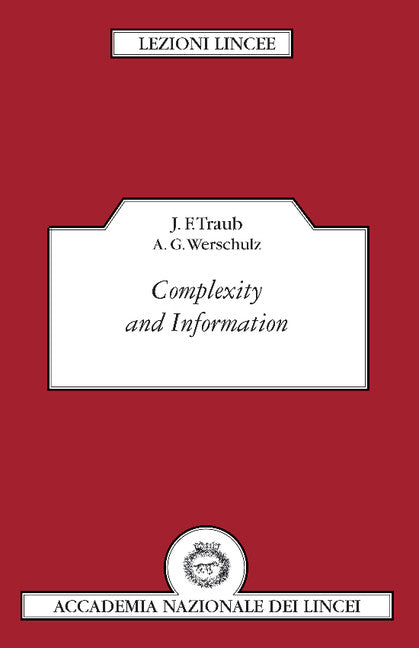Freshly Printed - allow 8 days lead
Couldn't load pickup availability
Complexity and Information
This 1998 book covers the twin themes of computational complexity and information.
J. F. Traub (Author), A. G. Werschulz (Author)
9780521485067, Cambridge University Press
Paperback, published 10 December 1998
154 pages, 10 b/w illus. 5 tables
21.6 x 14 x 0.9 cm, 0.2 kg
'Clearly written, filled with interesting examples, important theorems and tantalising conjectures, this is destined to be a classic.' New Scientist
The twin themes of computational complexity and information pervade this 1998 book. It starts with an introduction to the computational complexity of continuous mathematical models, that is, information-based complexity. This is then used to illustrate a variety of topics, including breaking the curse of dimensionality, complexity of path integration, solvability of ill-posed problems, the value of information in computation, assigning values to mathematical hypotheses, and new, improved methods for mathematical finance. The style is informal, and the goals are exposition, insight and motivation. A comprehensive bibliography is provided, to which readers are referred for precise statements of results and their proofs. As the first introductory book on the subject it will be invaluable as a guide to the area for the many students and researchers whose disciplines, ranging from physics to finance, are influenced by the computational complexity of continuous problems.
Part I. Fundamentals: 1. Introduction
2. Information-based complexity
3. Breaking the curse of dimensionality
Part II. Some Interesting Topics: 4. Very high-dimensional integration and mathematical finance
5. Complexity of path integration
6. Are ill-posed problems solvable?
7. Complexity of nonlinear problems
8. What model of computation should be used by scientists?
9. Do impossibility theorems from formal models limit scientific knowledge? 10. Complexity of linear programming
11. Complexity of verification
12. Complexity of implementation testing
13. Noisy information
14. Value of information in computation
15. Assigning values to mathematical hypotheses
16. Open problems
17. A brief history of information-based complexity
Part III. References: 18. A guide to the literature
Bibliography
Subject index
Author index.
Subject Areas: Mathematical theory of computation [UYA], Numerical analysis [PBKS]


